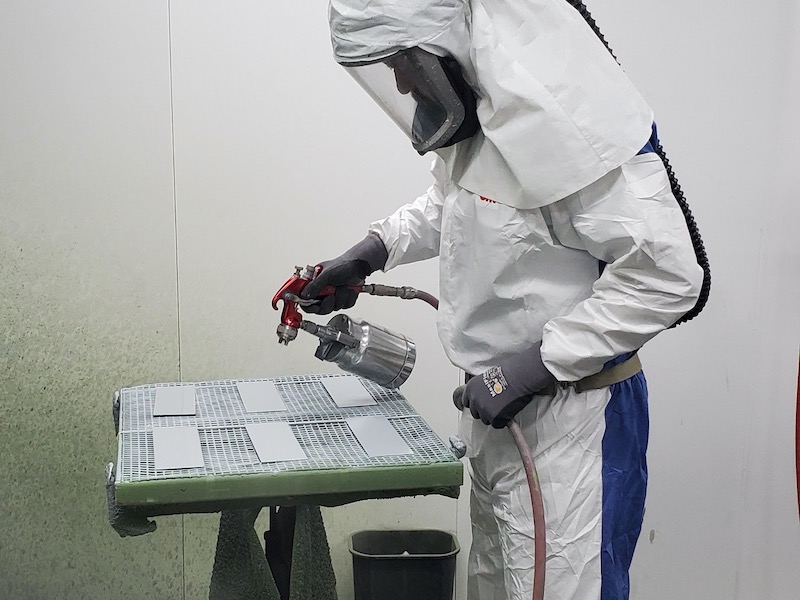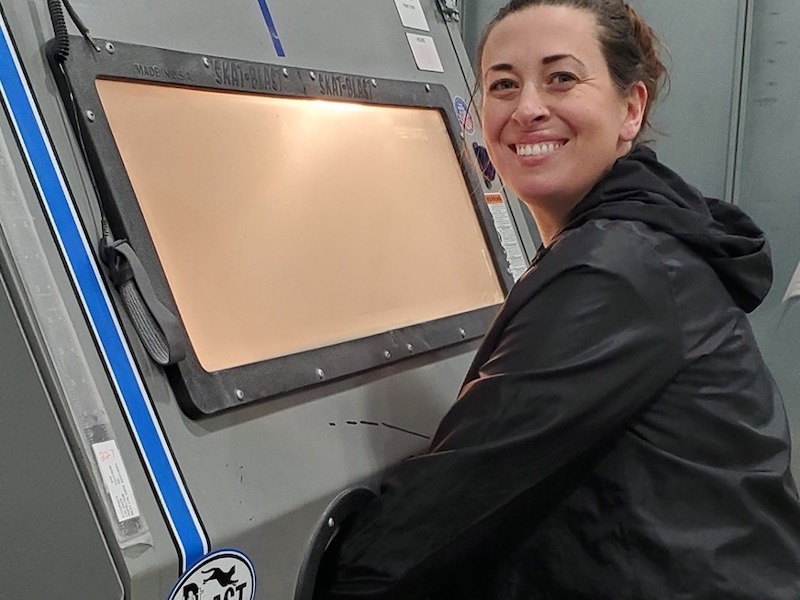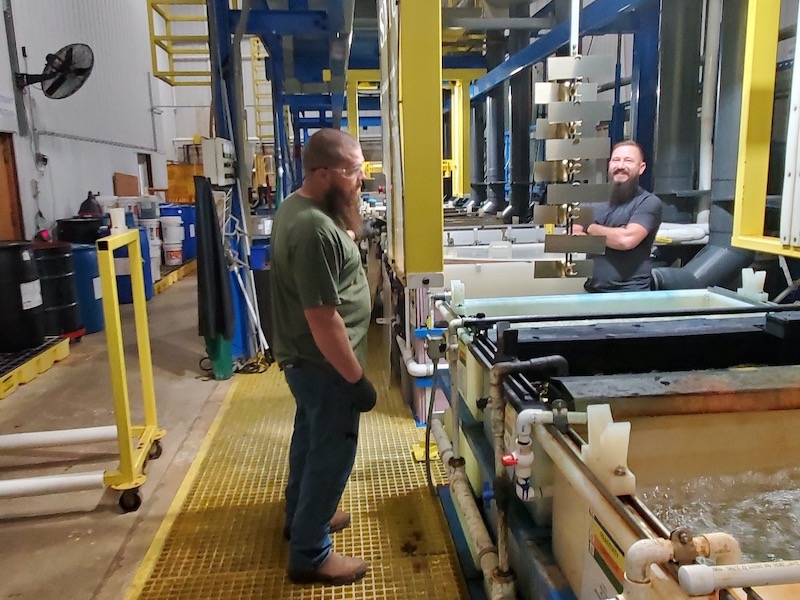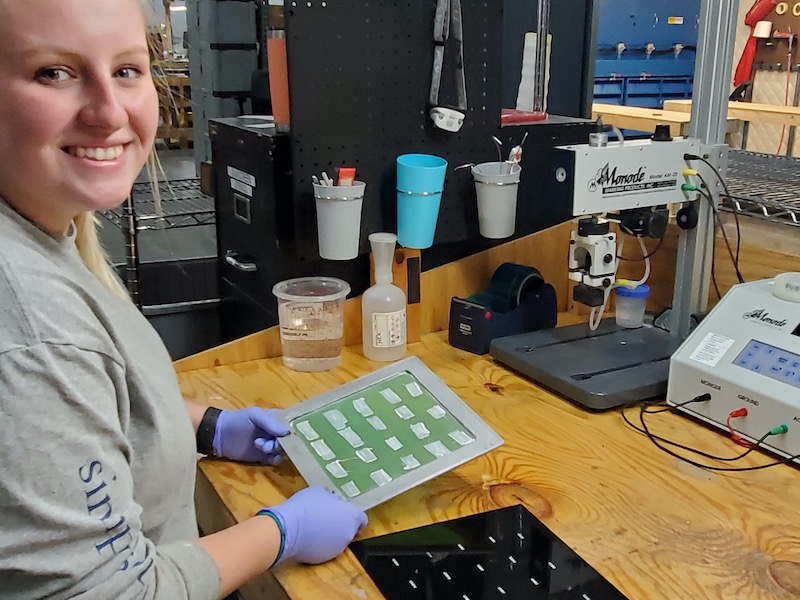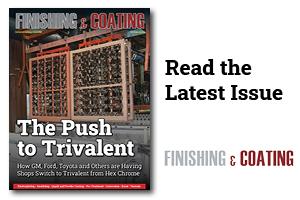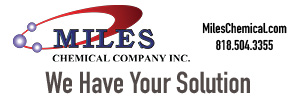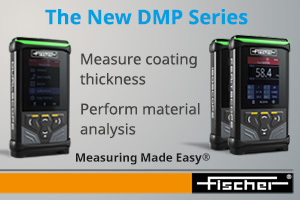Robby Harris has a big problem on his hands: the executive director of special processes at Steelville Manufacturing in Missouri is often having to turn away work at their facility, which makes and then coats over 8,500 discrete parts a year, most of which are in groups of 32 pieces or less.
 “We are having trouble keeping customers at bay,” says Harris. “There are a lot of problems with processors these days, and everyone is wanting us to do their work.”
“We are having trouble keeping customers at bay,” says Harris. “There are a lot of problems with processors these days, and everyone is wanting us to do their work.”
Granted, it’s a problem many manufacturers and coaters would love to have, but for the people running Steelville — located in the town of Steelville about 90 minutes southwest of St. Louis — they won’t sacrifice quality for a few more bucks.
“We want to under-commit and over-perform, so we are very careful about the workload that we take on,” Dennis Bell says.
But help is on the way for Steelville’s finishing and coating department: a new 15’ x 20’ paint booth has been constructed by Fluid Air Inc- of St. Louis, Missouri, as well as a 10’ x 15’ mix room, and a 14’ x16’ curing oven. They are also increasing the size of their existing paint booth, and are in the process of adding a new fully-automated 8-foot tank line which should be complete by December 2020, built by Corrotec Inc. out of Ohio.
“We’ve also added an automated vapor degreasing system to eliminate time-consuming hand cleaning,” Harris says. “We added automated abrasive blasting cabinets to decrease operator labor time, and will be repurposing our existing 4-foot line to accommodate specialty processes.”
Parts for Aerospace and Tier-I
Suffice to say, Harris and his team have a plan, which is crucial since 80% of the parts they make and coat goes directly to aerospace OEMs or their Tier-I suppliers. In fact, it was Harris who helped build the plan for the coating facility back in 2013 when he joined the company when it decided to build its own coating operation, among other things.
Steelville Manufacturing was founded in 1959, and began its life as Erma’s Firearms Manufacturing Co. Paul Bell, who held a 25% share in the company, bought the entire assets in 1979, with one of the reasons being that he wanted to provide good jobs for the people in the community, which numbers 1,639 people.
Shortly after, the company began machining parts for McDonnell Douglas (now Boeing), and Steelville Manufacturing became a top supplier for machined parts. Over the years, Dennis Bell — Paul’s son who started working in the company in 1974 at 19 and is now CEO — started to realize that there was a major risk involved that they could not control: sending parts outside of the company for heat treat, chemical processing, and paint. In 2014, Steelville started working towards bringing their processing dream into fruition, with Harris newly on board to set up the finishing and coating operations.
“At that point, there were three of us,” he says. “Over the next year we wrote internal procedures, purchased equipment, and I was also given the daunting task of writing the environmental permitting needed.”
Coating Their Own Parts Brings Control
They began painting their own parts in 2015 with eight full-time employees and a part-timer, and over the course of the next two years added heat treating and chemical processing capabilities, allowing them to control the quality of processing of their parts, including how long it took to complete them.
“It’s easier to promise customers due dates when you can control every aspect of a finished part all the way from the mill to the painting and assembly,” says Dennis Bell, who owns the company along with Bob Bell and John Bell.
“Presently, we are processing close to 90% of our machine shop parts in house with 35 employees in the finishing department,” Dennis says. “The companies on-time numbers are better than they have ever been, not to mention the millions of dollars that we have saved by doing it in house.”
Company-wide, Steelville employs nearly 230 employees with three shifts, including the 35 employees on the one processing shift.
For Harris, it’s all about quality. They just completed their most recent Nadcap audit with zero findings, a fact that excites Harris to no end. On top of that, their average scrap rate is around 0.5%.
“Our jobs completed on time is at 104%, which is possible by getting more jobs out on time that what we receive on time,” Harris says. “We're averaging around 90 jobs a day.”
Strong Owners and Management
Aside from the Bell brothers and Harris, the processing team is led by Lucas Callahan, paint department manager; Jesse LaForet, heat treat and chemical processing manager; Sheena Bratcher, processing coordinator; Jason Thomas, PD manager; Brad Bunyard, quality manager, and Richard Nelson, quality lead.
Steelville’s main industry sector is aerospace, but they have a commercial market, defense market and commercial crew transportation systems that they also focus on. Top processes include solution quench and aging, etching, penetrant inspection, chemical conversion coating, sulfuric anodize Type II CL1, hard coat anodize, passivation, alkaline cleaning, paint, abrasive blasting, silk screening, electro-etch, salt spray testing and tensile testing.
Essential, they have claimed their stake as a one-stop-shop for many OEMs looking for a manufacturer and coater all in one. And they continue to look for opportunities to expand.
“Currently, colored anodize is No. 1 on our radar,” says Harris, who adds that the secret to Steelville’s success is being open-minded and willing to change.
“We’ve tried to think outside of the box and not repeat mistakes we had seen others make in the past,” he says. “Many processors stick with the “It’s been done this way for 40 years, so why change it?’ method. I prefer to always change it. We’re always looking to add a competitive edge.”
Empowering Employees Brings Success
That includes creating a good culture and working together as a team, which the owners feel have been another huge factor in their success.
“We try to pass down our knowledge and empower people to make decisions,” Harris says. “That has led to a very effective and confident staff.”
Owner John Bell says the key factor for Steelville’s success is simply producing high-quality parts in a very timely manner.
“It also helps that we are a one-stop-shop. There are not a lot of companies that can machine parts, heat treat them, chemical process and paint, assemble, and silkscreen all in the same place. We’re able to control the manufacturing process from start to finish,” Dennis Bell says.
Harris says his happiest day at Steelville was when they passed their first Nadcap audit with only three findings.
“People in the processing industry had cautioned the owners for years that they would not be successful in processing,” he says. “My happiest moment would have to be that day that we proved them all wrong.”
Harris and his team feel good about the growth of the company, especially with a talented team and a great set of owners and managers.
“It sounds cliché for an aerospace company, but I feel like the sky is the limit,” he says. “We have a pretty good strategic plan in place for the future. To simplify our plan: we set goals, then we achieve them. We refuse to fail.”





